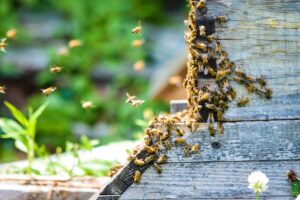Are you tired of tossing and turning at night? Do you wish you could improve your sleep in 2025 and wake up refreshed and energized? Well, you’re in luck! New research has uncovered some science-based tips that may help you achieve a better night’s sleep. From the effects of caffeine to the impact of diet and naps, these findings offer valuable guidance for anyone seeking to optimize their sleep patterns. So, grab a cup of coffee (or maybe not), and let’s delve into the fascinating world of sleep science.
When it comes to caffeine, the popular stimulant found in coffee, tea, and a variety of other beverages, its effects on sleep can be both beneficial and detrimental. Interestingly, some individuals use caffeine strategically to help them stay awake until a later hour. For these individuals, moderate and judicious consumption of caffeine can be a helpful tool in their sleep routine. However, it’s important to note that excessive caffeine intake or consuming it too close to bedtime can disrupt sleep quality. So, if you’re relying on caffeine to pull an all-nighter, you might want to reconsider your strategy.
Diet, as it turns out, has a significant impact on our sleep patterns. Research has shown that certain foods can promote better sleep, while others can hinder it. For instance, foods rich in tryptophan, such as turkey and nuts, can increase serotonin levels and promote relaxation. On the other hand, heavy meals, spicy foods, and excessive alcohol consumption before bed can lead to indigestion and disturb your sleep. So, if you’re looking to improve your sleep in 2025, paying attention to your diet might just be the key to unlocking more restful nights.
Napping, a practice often associated with children or the elderly, may hold surprising benefits for individuals of all ages. Research has found that short power naps can improve alertness, memory, and cognitive performance. A 20-30 minute nap during the day can provide a much-needed boost and help combat fatigue. However, it’s essential to keep naps short and avoid them too close to bedtime, as they may interfere with your regular sleep schedule. So, if you find yourself in need of an energy boost, a strategic nap might be just what you need to enhance your sleep quality.
In conclusion, improving your sleep in 2025 is within reach, thanks to new science-based tips. By understanding the effects of caffeine, making mindful choices about your diet, and strategically incorporating naps into your routine, you can optimize your sleep patterns and wake up feeling refreshed. So, why not start implementing these recommendations today? Your future self will thank you for it. Remember, a good night’s sleep is not just a luxury – it’s a necessity for a vibrant and fulfilling life. Sweet dreams!









